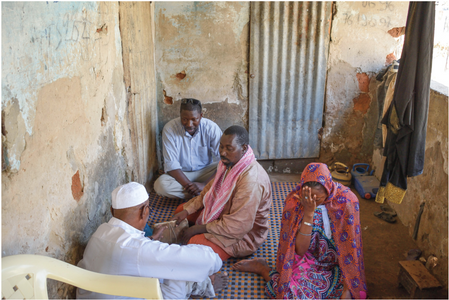Fallou Ngom studies Ajami for new insight into African history and culture

For centuries, scholars’ understanding of sub-Saharan Africa derived from the written records of European colonialists, who gave the impression that sub-Saharan Africans had no native written languages of their own. In fact, says Fallou Ngom, who grew up in Senegal, people in sub-Saharan Africa have used a written system derived from Arabic to record the details of their daily lives since at least the 10th century.
That script, Ajami, is still flourishing; people throughout Africa use it to write phonetic renderings of about a dozen languages, including Swahili, Wolof, and Hausa. But because texts written in Ajami are often passed down through families where they can be lost over generations, many are inaccessible to scholars, few of whom can read the script anyway. Those who know about Ajami texts often dismiss them as mundane, with little scholarly value. Ngom, director of Boston University’s African Studies Center, disagrees. He is digitizing more than 18,000 of these indigenous texts—including those in Ajami, Arabic, and Ajami-Arabic—and making them widely available to offer scholars new insight into African history, literature, culture, medicine, and everyday life.
Under Ngom’s leadership, BU offers the only Ajami program in the United States. “Our students are the first generation who are able to read these documents, and have access to these resources,” he says. African studies students are helping Ngom and his colleagues to develop classroom materials, and are learning to teach Ajami. Through this work, “we are beginning to address this fundamental flaw in the training of a new generation of Africanists,” Ngom says.